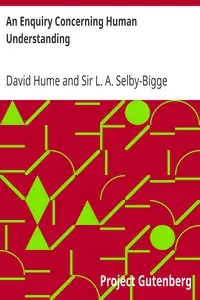"The History of England in Three Volumes, Vol. I., Part D." by David Hume is a historical account written in the late 19th century. This volume focuses on the events and figures surrounding the transition from the reign of Elizabeth I to that of James I, exploring significant political and religious changes in England. The text delves into the intricate dynamics of the monarchy, the rise of Protestantism, and the complex relationships with foreign powers, particularly Spain and France, all set against the backdrop of a divided nation. The opening of this volume discusses the political atmosphere in England following the death of Queen Mary and the accession of Elizabeth I. It outlines the widespread joy among the populace over Elizabeth's ascent, as she is seen as a figure of hope and stability after the tumultuous reign of her sister. The text describes how Elizabeth, upon becoming queen, expressed gratitude for her deliverance from persecution and aimed to consolidate her power by balancing religious tensions and forming alliances. As the narrative unfolds, it highlights her initial decisions regarding religion, including the reformation efforts and her cautious approach to governance, which sought to maintain favor with both Protestant and Catholic factions without resorting to violence. (This is an automatically generated summary.)

The History of England in Three Volumes, Vol. I., Part D. From Elizabeth to James I.
By David Hume
"The History of England in Three Volumes, Vol. I., Part D." by David Hume is a historical account written in the late 19th century. This volume focuse...
David Hume was a Scottish philosopher, historian, economist, and essayist who was best known for his highly influential system of empiricism, philosophical scepticism and metaphysical naturalism. Beginning with A Treatise of Human Nature (1739–40), Hume strove to create a naturalistic science of man that examined the psychological basis of human nature. Hume followed John Locke in rejecting the existence of innate ideas, concluding that all human knowledge derives solely from experience. This places him with Francis Bacon, Thomas Hobbes, John Locke, and George Berkeley as an empiricist.


















